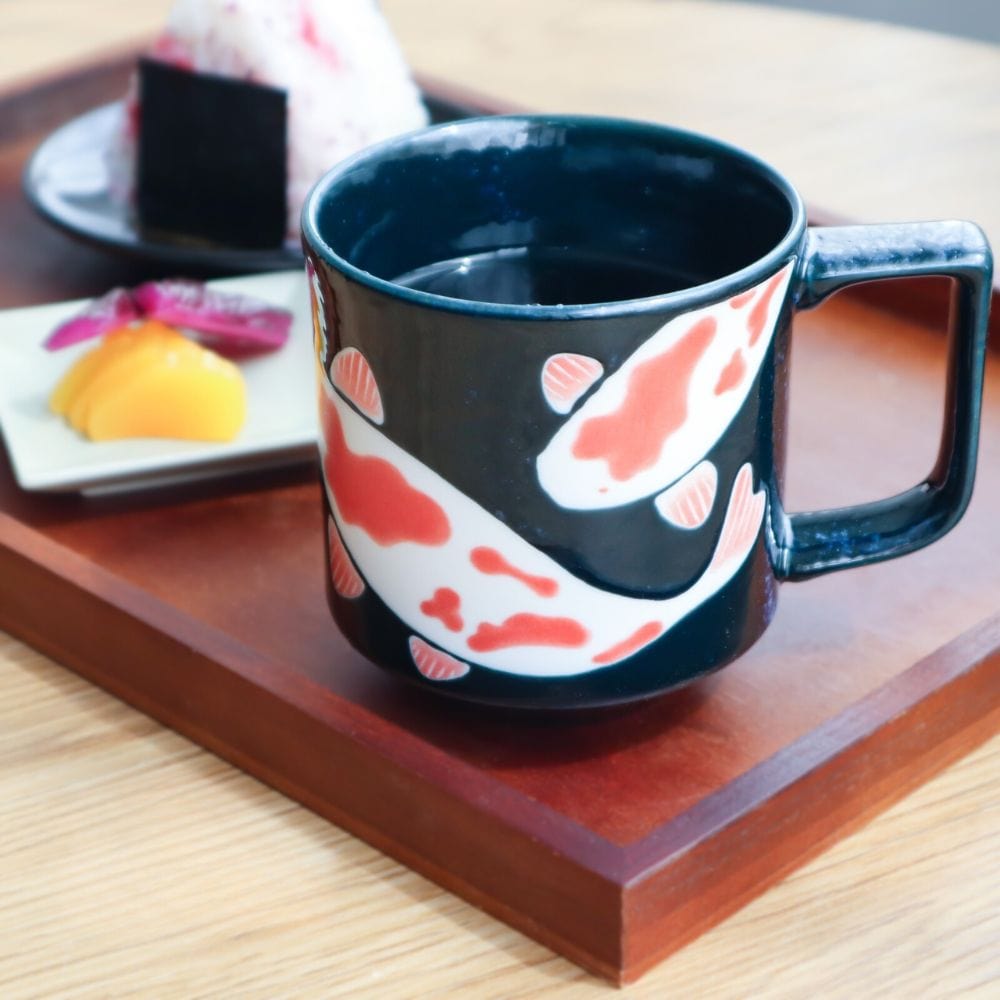
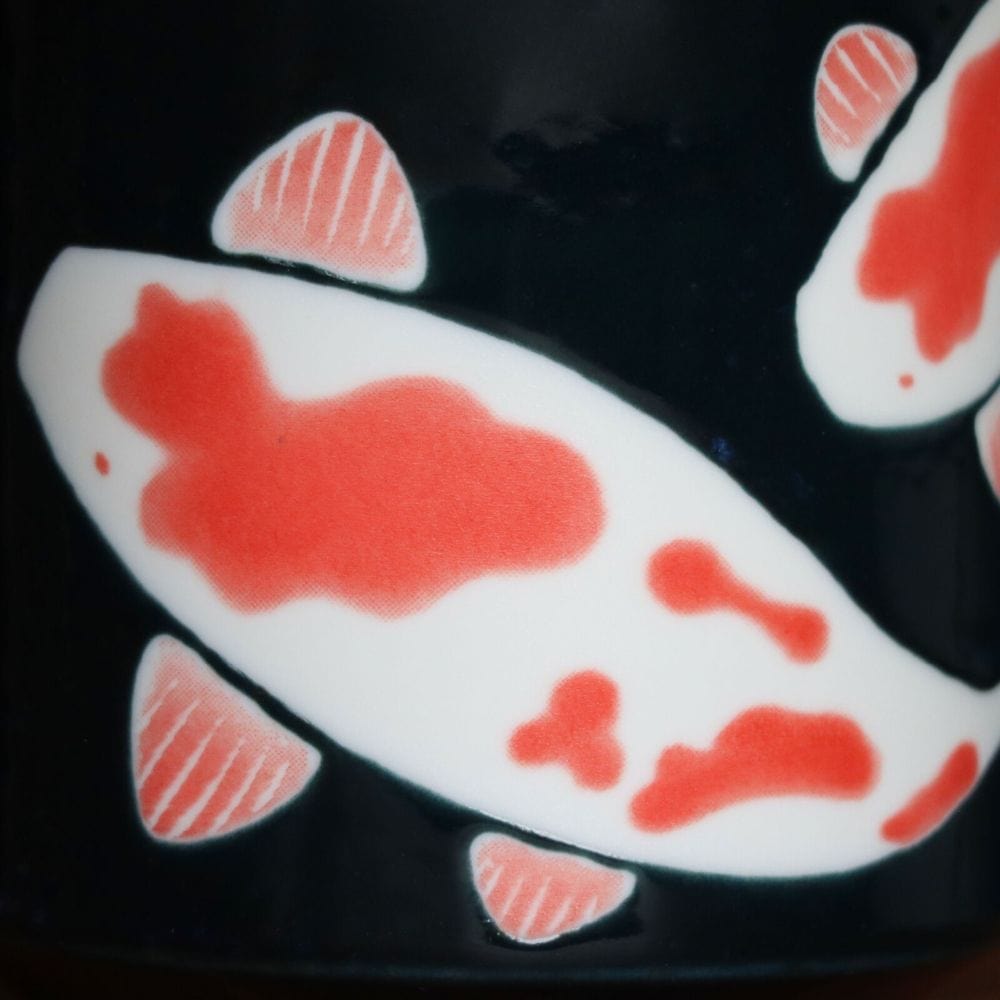
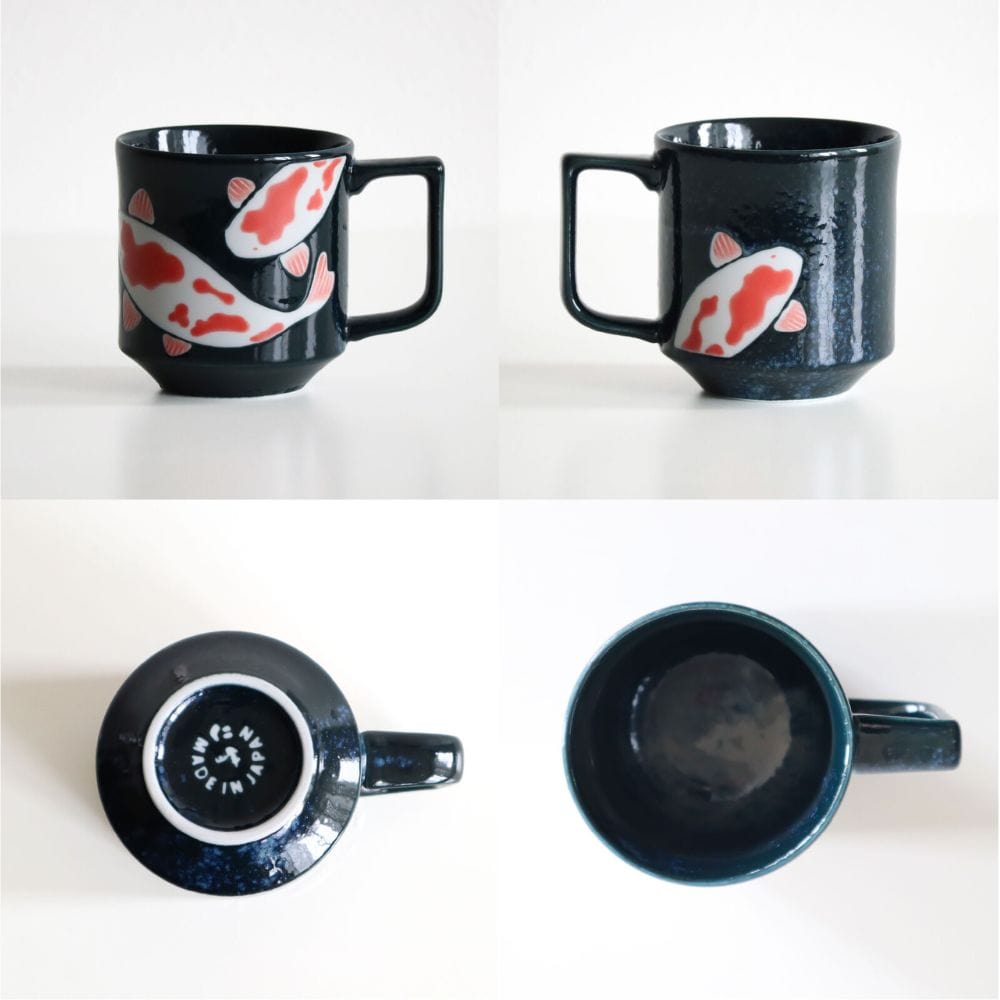
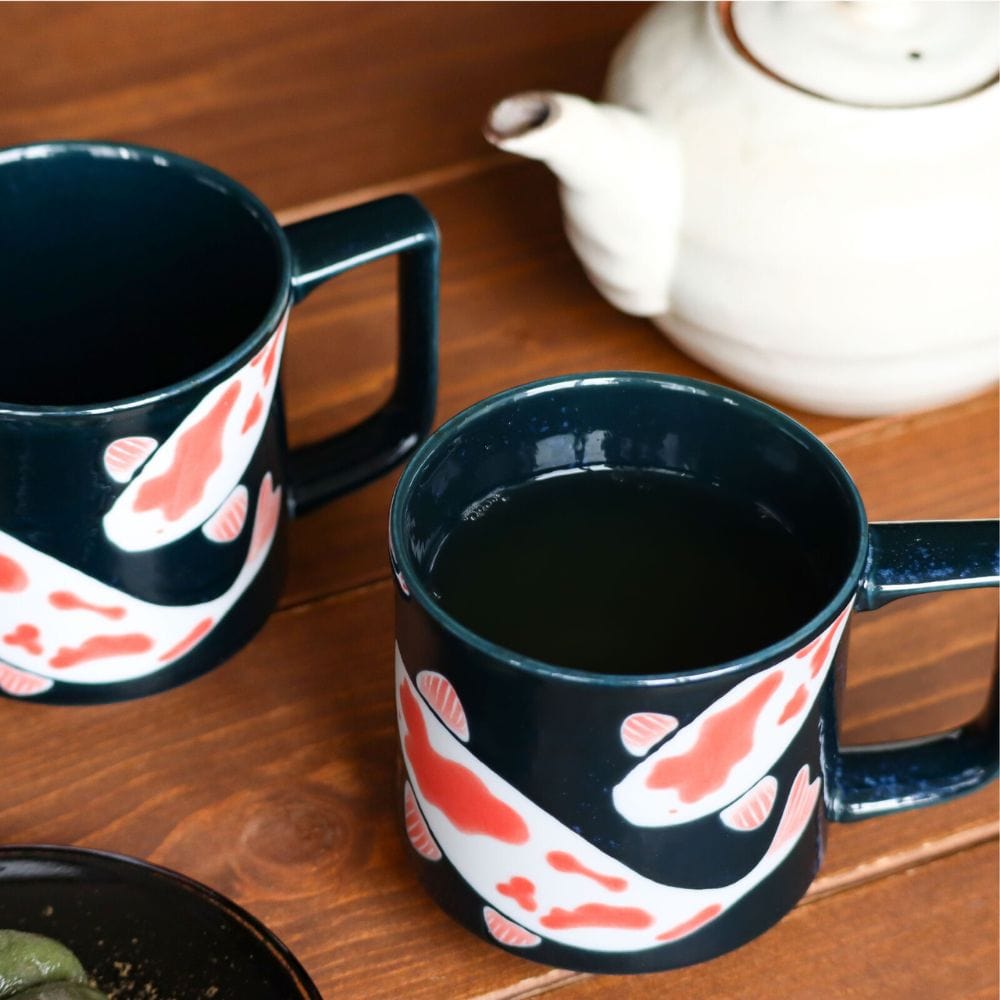
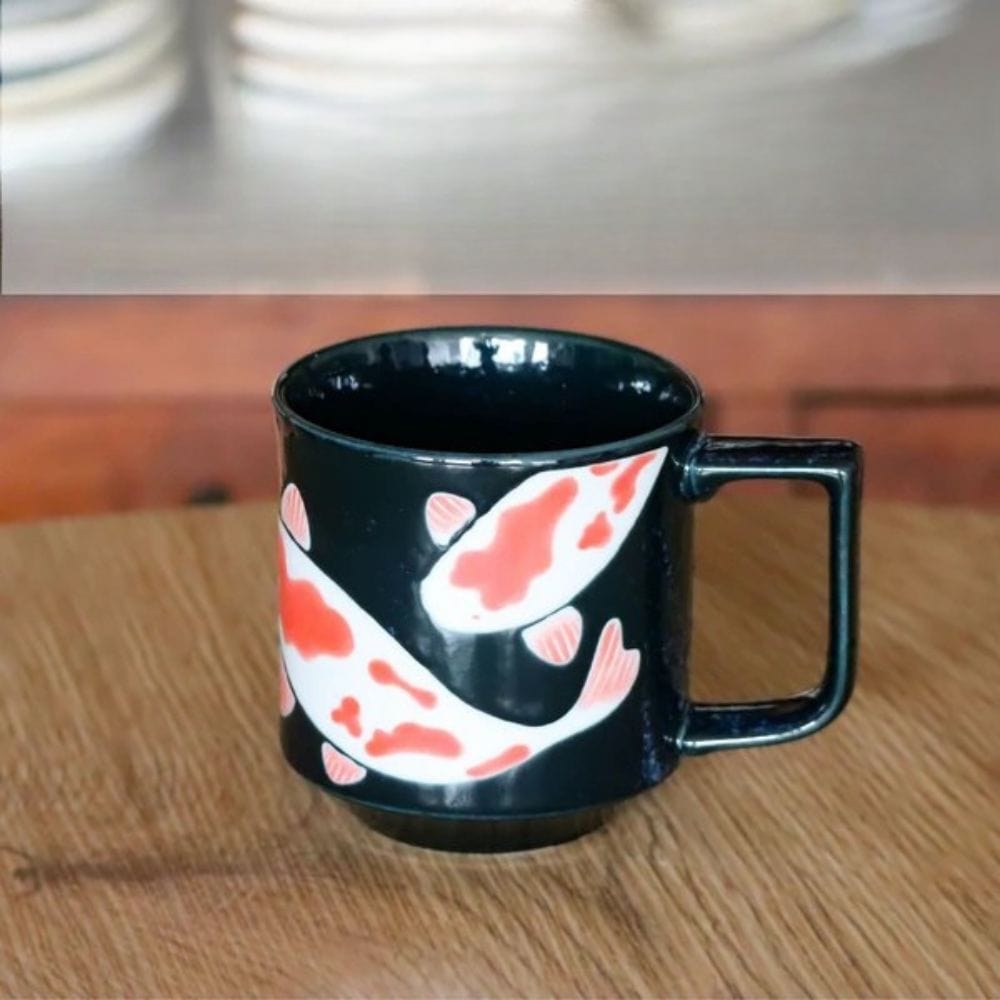
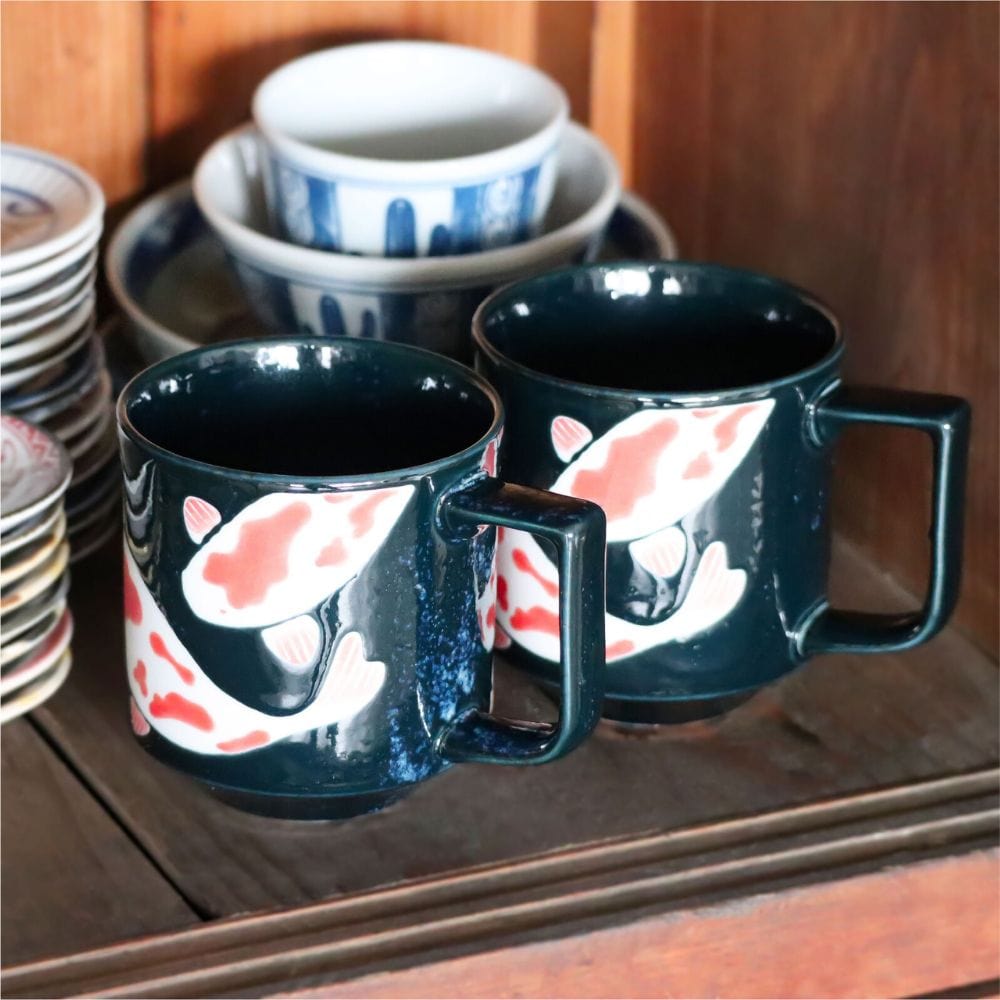
Nishiki Goi Mug
Fast & Secure Delivery from Japan to your Door [Shipping Policy]
Shop Safely with Encrypted Checkout and Verified Gateways.
Pairs well with

Nishiki Goi Mug
Serenity in Every Sip – Handcrafted Nishikigoi Mug in 12oz Size
The Nishikigoi—more than just a fish, it’s a living symbol of tranquility, perseverance, and grace. This 12oz mug, crafted from fine porcelain in Japan’s renowned Mino-yaki tradition, captures the elegance of the koi in a vivid, hand-painted motif. The contrast of bright white and vermilion red against a rich navy glaze evokes a quiet pond beneath a starlit sky, inviting reflection with every cup.
Perfectly sized at 12 oz / 400 cc, the mug balances beauty and function. Its wide handle fits comfortably in all hands, while the cylindrical body retains heat, making it ideal for both tea and coffee. Each mug is slightly unique due to natural kiln variations—subtle shifts in glaze, color depth, and finish that reflect the soulful unpredictability of handcrafted ceramics.
This is more than a mug—it’s a quiet companion for mindful moments, a vessel that carries more than warmth. Whether gifting or collecting, it adds a meaningful accent to your kitchen, one rooted in centuries of Japanese artistry.
Microwave- and dishwasher-safe (for reheating only), for your everyday convenience.
Embrace the elegance of koi. Let calm flow with every sip.
Product Information
Care instructions
Note
FAQs
All you need to know about Japanese Pottery.
What types of traditional pottery are made in Japan?
Japan is home to several renowned pottery styles, including Mino ware (Gifu), Bizen ware (Okayama), Arita and Imari ware (Saga), Shigaraki ware (Shiga), and Mashiko ware (Tochigi). Each region has its own distinct materials, glazes, and firing techniques that reflect local history and aesthetics. Toki City in Gifu Prefecture is particularly renowned as the heart of Mino ware (Minoyaki)—the most widely produced pottery style in Japan.
What materials are used in artisan Japanese pottery?
Most artisan pottery in Japan is made from locally sourced clay, often mixed and refined by hand. Natural minerals and ash are used in glazes, and many pieces are wood-fired or fired in traditional climbing kilns (noborigama), producing unique surface textures and natural variations.
Are artisan Japanese pottery pieces safe for food use?
Yes. Authentic artisan pottery is made with food-safe, lead-free glazes and is carefully fired at high temperatures to ensure durability and safety. However, it's important to follow care instructions, especially for unglazed or porous ceramics.
What makes Japanese pottery different from Western ceramics?
Japanese pottery often emphasizes wabi-sabi—the beauty of imperfection—resulting in organic shapes, subtle asymmetry, and natural glazes. Unlike Western ceramics, which may prioritize uniformity, Japanese pieces often celebrate the individuality of each item, reflecting the artist's hand and the firing process.
How should I care for artisan-made Japanese pottery?
Hand-wash pottery with mild soap and avoid extreme temperature changes (like placing hot items into cold water). Some unglazed pieces may absorb moisture, so allow them to fully dry before storing. Avoid microwaves or dishwashers unless the piece is specifically labeled as safe for such use.

